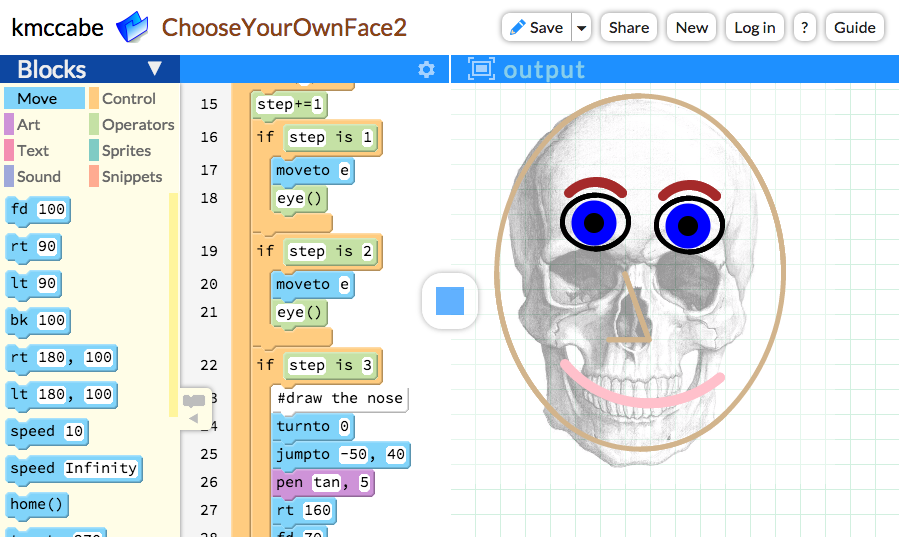Coding in the Humanities
I just finished up helping with a 3-day professional development workshop for Beaver Country Day teachers. At the workshop, teachers created concepts for coding projects using Pencil Code in their non-computer-science classrooms. Each teachers imagined coding exercises they might use in their own classrooms, and then they traded exercises with each other, playing student and creating a bit of code to do the assignment and explore the concept.
For example, one art assignment was to explore proportions of human faces, and as a "student project", teacher Kimberly McCabe created this clever web app that lets you place two eyes, a nose, and a mouth, then click again to compare your ideas to an actual human skull.

If you try her program, be sure to click five times: after placing the eyes, nose, and mouth, a fifth click will reveal the skull, and you can see where your perceptions of proportions may differ from reality. Kim was not an experienced coder, but the idea of the workshop was to let teachers like Kim work in a space at Google with engineers who could help with computer science tips such as how to use variables or conditionals to put together a sequence of clicks. Bob Cassells coordinated several of Google engineers to volunteer with the group, and Rob MacDonald and Meerah Shah organized the teachers.
Beaver Country Day school is a unique institution to work with on computer science education, because they are implementing an idea they call the Coded Curriculum where teachers are incorporating some coding into every class across their curriculum, in both STEM and non-STEM subjects.
This event was organized by Beaver, but it follows a similar theme to the Pencil Code hackathon series we hosted in 2014, which was attended by teachers from many schools around New England.
Some ideas from those workshops have been particularly memorable - for example, English teacher Whitney McKnight came up with the idea of exploring Shakespeare by having students create interactive chatbots that play the part of a character, say, Lady MacBeth, an interesting twist on the computer science idea of the Turing Test. The notes from previous hackathons are raw, but they are worth a look.
Bob, Rob, and Meerah are working to collect together materials from this most recent workshop.
